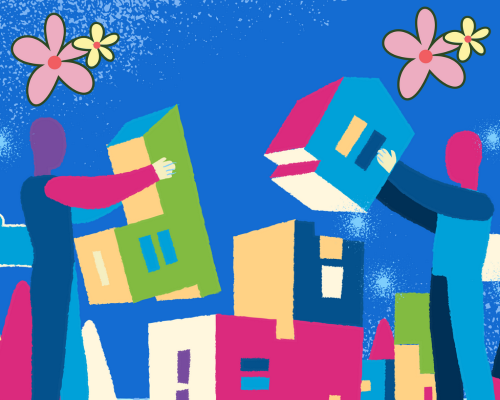


Washington continues to face a severe housing and homelessness crisis — one that is the direct result of decades of policy failure, housing disinvestment, and growing inequality. Thousands of our neighbors are pushed into homelessness not because of personal shortcomings, but because our systems have failed to ensure access to basic needs: affordable housing, healthcare, and economic stability.
Yet, instead of addressing these root causes, many cities are doubling down on punishment. Rather than investing in housing and care, local governments often respond to visible homelessness by enacting and enforcing laws that criminalize the basic act of existing in public — sleeping, sitting or trying to stay warm. These policies are ineffective, inhumane, and deepen the trauma of people who are already struggling to survive.
Last year, the United States Supreme Court dealt a blow to human dignity in City of Grants Pass v. Johnson. The case centered on an Oregon city ordinance that issued tickets to people sleeping in public when there were not enough available shelter beds.
The court ruled that cities may punish people for sleeping in public, even when no shelter is available. The decision opens the door to further criminalization of unhoused people for unavoidable behavior tied directly to their status — signaling that survival itself can be punished. However, the ruling also highlighted the need for local governments to enact reasonable regulations that do not disproportionally impact homeless individuals.
In the wake of that decision, Washington must take a different path forward from what SCOTUS set out.
One proposed effort was the “Safe Spaces, Strong Communities Act” (HB 1380), which sought to establish statewide guardrails on local enforcement practices. The bill would have provided guideposts for cities and helped prevent some of the most harmful and discriminatory local ordinances that banish or punish people simply for being unhoused. It was a harm-reduction measure — not a solution to homelessness, but a step toward reducing its criminalization.
ACLU-WA Smart Justice Policy Program Director Jazmyn Clark testified in favor of the bill, emphasizing that the bill “is crucial for protecting the civil rights and liberties of individuals experiencing homelessness in our state.”
Without statewide guidance, we are left with “an arbitrary patchwork of local ordinances, resulting in inefficient use of resources and inconsistent treatment of homeless individuals,” Clark said in her testimony.
While the bill did not pass in the 2025 session, the need for action remains urgent. We will continue to advocate for policies that protect the rights and dignity of unhoused people —and push back against efforts to treat housing insecurity as a nuisance instead of a policy failure.
Meanwhile, the ACLU-WA continues to pursue legal strategies to provide protections to unhoused individuals under our state Constitution.
In Kitcheon v. Seattle, we are challenging the city’s practice of sweeping unhoused encampments, which often results in the destruction of people’s belongings and displacement without access to shelter. We have already secured a ruling affirming that people experiencing homelessness have privacy rights under the Washington Constitution, and the case remains ongoing.
In Currie et al v. City of Spokane, we are challenging three city laws that criminalize homelessness through sit-lie and anti-camping ordinances. These laws don’t make communities safer — they push people further into the margins and violate our state’s prohibition on cruel punishment.
The Washington Constitution is more protective than federal law in many ways. Article I, Section 14 bars cruel punishment, even when it’s not considered “unusual,” and we are leveraging those protections to defend our unhoused neighbors.
These fights are part of a broader effort to shift the narrative and the law. Homelessness is not a crime. Survival should not be met with punishment. We remain committed to building a future where all Washingtonians — housed or unhoused — are treated with dignity, fairness, and humanity.